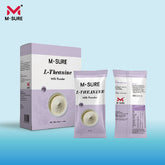Long-Term Effects of Negative Emotions on Physical Health
by
BiotechAusway
09 Aug 2025
Long-term negative emotions can persistently damage physical health through neuroendocrine, immune, and other pathways, posing risks across multiple organ systems.
I. Cardiovascular System Risks
-
Hypertension & Coronary Artery Disease – Chronic anxiety or anger activates the sympathetic nervous system, causing excessive secretion of vasoactive substances (e.g., adrenaline). This leads to repeated blood pressure spikes, vascular endothelial damage, and accelerated atherosclerosis, greatly increasing risks of coronary heart disease and myocardial infarction.
-
Arrhythmias & Impaired Cardiac Function – Chronic stress disrupts cardiac electrophysiology, making individuals more prone to palpitations, chest tightness, or ventricular premature beats. Symptoms may mimic cardiovascular disease even without structural heart problems.
II. Endocrine & Metabolic Disorders
-
Thyroid Dysfunction – Emotional stress interferes with thyroid hormone secretion, increasing risks of nodules, hyperthyroidism, or hypothyroidism.
-
Menstrual Irregularities – Chronic anger in women can cause “liver qi stagnation” (TCM), leading to irregular cycles, abnormal bleeding, or premature menopause.
-
Glycemic Dysregulation – Prolonged cortisol secretion reduces insulin sensitivity, elevating the risk of diabetes.
III. Immune System Impairment
-
Severe Immune Suppression – Stress hormones (e.g., cortisol) inhibit immune cell activity, reducing natural killer (NK) cell function by over 60%, weakening anti-infection and anti-cancer defenses.
-
Autoimmune Diseases – Emotional dysregulation activates inflammatory cytokines (e.g., IL-6, TNF-α), leading to self-tissue attacks (e.g., rheumatoid arthritis).
IV. Digestive System Damage
-
Gastric Ulcers / Gastritis – Stress impairs gastric blood flow (via “liver-fire attacking stomach” in TCM), disrupting acid secretion and mucosal barrier function.
-
Irritable Bowel Syndrome (IBS) – Anxiety alters gut microbiota balance, leading to diarrhea, constipation, or bloating.
V. Nervous System & Skin Health
-
Cognitive Decline – Chronic cortisol exposure damages the prefrontal cortex, causing memory loss, poor concentration, and insomnia.
-
Accelerated Skin Aging – Negative emotions increase oxidative stress, contributing to acne, reduced skin elasticity, and wrinkles.
VI. Organ-Specific Nodular Hyperplasia
Prolonged emotional suppression or anger increases risks of:
-
Breast nodules
-
Thyroid nodules
-
Uterine fibroids
These are linked to TCM pathological processes such as “qi stagnation and blood stasis.”
Key Interventions:
-
Regular meditation and social engagement to regulate stress responses and prevent sympathetic overactivation.
-
Seek professional psychological support to help break the “emotion–physiology” vicious cycle.






